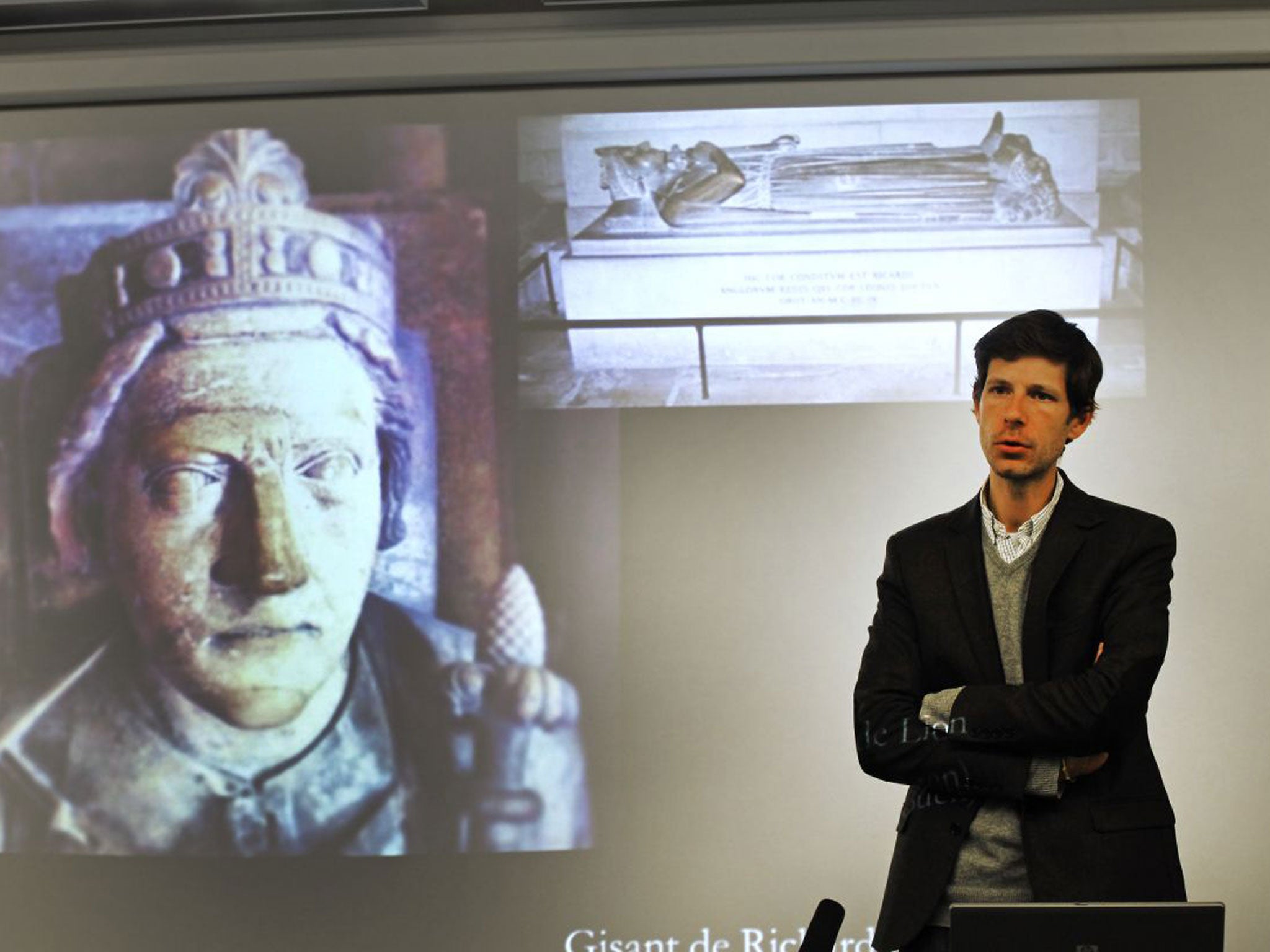'Brutal' Richard's I's 'lion' heart was soaked in holy balm to ease his passage into heaven
Autopsy of 12th-century monarchy reveals heart embalmed in purifying frankincense

Eight centuries after his death, the heart of Richard the Lionheart has revealed a sinful royal secret to forensic scientists.
When embalmed after his death in April 1199, the heart of King Richard I was soaked in frankincense – suggesting that the monarch feared that his many acts of treachery and brutality might exclude him from the kingdom of heaven.
Philippe Charlier, a celebrity French pathologist who specialises in the coldest of cold cases, led a team of scientists which studied a fragment of the mummified heart of King Richard preserved in Rouen, Normandy.
“We found many interesting things,” he said. “But the most interesting was the presence, in substantial quantities, of frankincense, which has never been found in any other embalming. It is unique. This suggests that Richard, and those around him, knew of episodes in his life which had a bad smell... Frankincense, linked to Christ’s story, may have been intended to make him smell like a saint and therefore to ease his passage to heaven.”
Although Richard has gone down in popular history as a good and noble king, his 41 years were stained with treacherous revolts against his father, King Henry II, and with massacres of Muslims during the Crusades and of English Jews. He is also believed by historians to have had a number of homosexual love affairs – something then regarded as unnatural.
Last year, Mr Charlier – who the French call the “Indiana Jones of the graveyards” – was allowed to remove two of the 60 grams of crumbled remains of King Richard’s heart which have been preserved in Rouen. His team’s findings were published in the American online journal, Scientific Reports.
Mr Charlier told a press briefing at the University de Versailles that there was “no shadow of doubt” that the powdered heart in Rouen belonged to Richard, who was king of England from 1189 to 1199. He said that there was documentary evidence authenticating the remains going back to the 12th century.
King Richard died of septicaemia or gangrene 10 days after he was shot in the shoulder with a crossbow while besieging the castle of Chalus-Chabrol in Limousin in April 1199. There has long been speculation that the arrow tip may have been poisoned or that the king may have been poisoned by his entourage. Mr Charlier said that his study had found “no evidence” whatsoever of poison.
The studies showed that the heart had been preserved with an elaborate combination of products, including mercury, creosote and lime and stuffed with plants including myrtle, mint and daisies. But the real surprise, he said, was the presence of substantial traces of frankincense.
“We have no other example of frankincense being used in the preservation of a body, however noble or royal,” he told The Independent. “There is one possible explanation. In the 10 days of agony before he died, Richard and his companions had time to brood on the many dark episodes in his life. The frankincense was intended to give him a smell of sanctity.”
Subscribe to Independent Premium to bookmark this article
Want to bookmark your favourite articles and stories to read or reference later? Start your Independent Premium subscription today.

Join our commenting forum
Join thought-provoking conversations, follow other Independent readers and see their replies